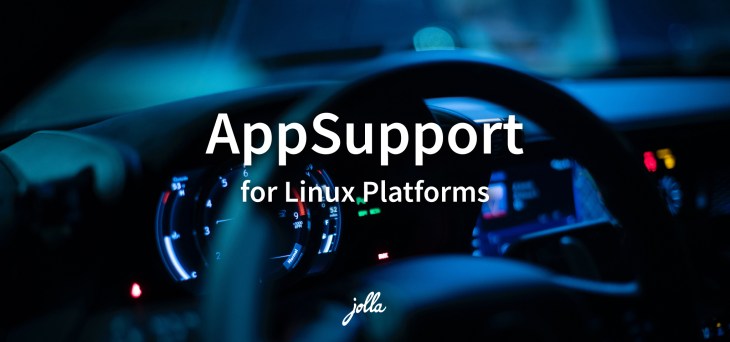Jolla, a Finnish startup that develops a mobile Linux-based alternative to Google’s Android which has had some take-up by the Russian government in the past, is looking to restructure its business to jettison links to the Russian state.
We reached out to the startup earlier this week to ask if it was concerned about the impact of looming EU sanctions on Russia — given how, since 2018, it has counted Russian telecom company, Rostelecom, as a strategic investor.
“We have actually ramped down business and exports to Russia already in 2021,” CEO and co-founder Sami Pienimäki told TechCrunch. “Thus, the potential tech sanctions would not impact Jolla’s business anymore. In parallel, Jolla is growing in particular rapidly in the automotive sector, and it formed already significant part of our 2021 revenues.”
“In regards the ownership, that is correct, and something we’re looking to re-structure during this year,” he also confirmed.
Sailfish has been certified in Russia for government and corporate use since 2016.
The following year its local licensee in the market, a company called Open Mobile Platform, could be heard gleefully touting a “totally Google-free” debut Sailfish device for the Russian market at the annual Mobile World Congress conference.
Then in 2018, Russian press reported that Rostelecom was seeking regulatory clearance for the acquisition of a 75% stake in Open Mobile Platform and an entity called Votron, which was reported to own a majority stake in Jolla. And that transaction appears to be how the Russian telco — which is partially state-owned — came to be the largest holder of Jolla shares.
But it’s an ownership structure that Jolla has now decided is no longer viable — creating a “difficult situation” which it implies has impeded its ability to grow in Europe.
That said, back in 2019 Jolla said it was concentrating the bulk of its energy on the Russia market — most likely as a result of its ownership ties to Russia. So it’s a huge reversal for the company to be pulling everything out just a few years later.
Although last summer Jolla announced it had finally hit profitability (in 2020). And, according to Pienimäki, it was growing significant revenue last year outside the Russian market.
In a statement posted to LinkedIn today (in Finnish), Samuli Simojoki the chairman of Jolla’s board, put more meat on the bones of its new goal of distancing itself from Russia — hinting that it’s hoping to find a buyer for the Rostelecom stake, potentially from the automotive sector, or perhaps by taking support from the Finnish government (if offered).
“Putin’s invasion of Ukraine forces each of us to evaluate our own actions in relation to Russia,” Simojoki writes [translated from Finnish using machine translation].
“It would be easy to say that you do not want to work for a company with such a significant indirect ownership by the Russian State. Jolla has for some time been looking for a shareholding structure that would provide a balanced ownership structure and significantly reduce Russian ownership… In the new situation, it is clear that the company has no future without a complete divestment of Russian ownership.”
Simojoki goes on to say that Jolla has already actively run down its Russian business during the past year — and “will not generate any revenue from Russia”.
“The only tie is therefore ownership,” he goes on, adding: “The company has some really interesting business openings in both the automotive and operating system sectors. Several European countries have long indicated that they would enter into cooperation without delay once the ownership structure is rectified.
“The company has an ongoing and positive dialogue with Finnish government representatives on these issues. One of Jolla Oy’s important partners is Daimler, and Jolla’s board of directors includes a Daimler representative. We have had an ongoing dialogue with Daimler in recent days about the situation, and Daimler’s representation on the board will be maintained.
“The aim is therefore to save the company through the ownership structure described above.”
One reason why Jolla may attract interest from the automotive sector is a new product it launched last year targeted at industries using embedded Linux-compatible platforms (such as car makers). This AppSupport for Linux Platforms product allows such systems to run Android apps without needing to license Google’s own automotive offerings.
